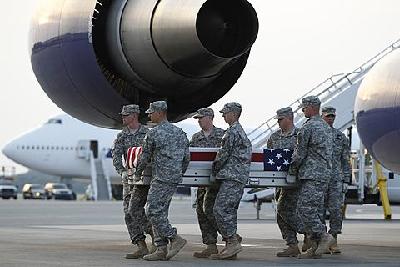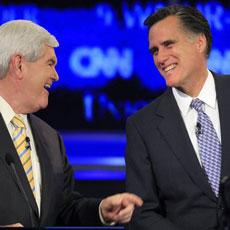The beginning of the expected drawdown of US troops in Afghanistan follows a steady decline in American public support for a war that has gone on for nearly 10 years.

When he ran for president in 2008, then candidate Barack Obama promised to withdraw US forces from Iraq, a war he opposed, and to strengthen the US effort against the Taliban and al-Qaida in Afghanistan.
In late 2009, the president announced he was sending 30,000 additional troops to Afghanistan, a move that was unpopular with some members of his own Democratic Party.
In the past two years, domestic support for the war in Afghanistan has weakened considerably. A recent poll found that 64 percent of those surveyed believe the Afghan war is no longer worth fighting. In late 2009, that number was 44 percent.
Bipartisan opposition
Ohio Democratic Congressman Dennis Kucinich is a longtime opponent of the wars in Iraq and Afghanistan, and of US involvement in the NATO mission in Libya.
"Things are falling apart at home while we are searching the world looking for dragons to slay," said Kucinich.

In recent weeks, war fatigue over Afghanistan has also crept into the debate among the Republican presidential contenders for 2012, including the frontrunner, former Massachusetts governor Mitt Romney.
"But I also think we have learned that our troops should not go off and try to fight a war of independence for another nation," noted Romney. "Only the Afghanis can win Afghanistan's independence from the Taliban."
Even the latest Republican to join the presidential race, former Utah governor Jon Huntsman, says the United States should be more aggressive in drawing down troop levels in Afghanistan. Huntsman spoke to NBC's Today program.
"What we need now is a healthy dose of nation-building here at home," said Huntsman. "Our core is weak. We need to focus on getting our own house in order right here."
Shifting priorities
Quinnipiac University pollster Peter Brown says during a period of several months national-opinion surveys have shown a growing level of war weariness among the American public.
"I do not think there is any doubt in Afghanistan, the involvement in Iraq and now the involvement in Libya has for many Americans raised questions about the wisdom of these policies," said Brown.
It is not just that Americans have tired of the Afghan conflict. They also see much more important priorities at home, especially reviving the US economy, says expert Stephen Hess with the Brookings Institution.
"A trio of wars is not exactly what Americans are interested in at this time when they have a very full platter of problems at home," said Hess.
Budget drain
Many Americans believe the war commitments in Afghanistan and Iraq are also a major budget drain on the US government at a time when many Americans are struggling economically.
Political analysts say the US commitment to the Afghan war could become an issue in next year's presidential campaign, especially for anti-war Democrats who are pressing for a speedier exit from Afghanistan.
Analyst Stuart Rothenberg spoke to VOA's Encounter program about the impact of Afghanistan on next year's US presidential election.
"Are we going to have stable environments?" Rothenberg asked. "Are we going to have talk about terrorists being allowed to gather and train? So I think this is another huge problem for the president. The problem here is clearly on his left with the anti-war element of the Democratic Party thinking that the president has violated a promise and a reason why they supported him in the last election."
President Obama received a modest boost in public opinion polls following the killing of al-Qaida leader Osama bin Laden. But that bump has largely dissipated as Americans refocus on the struggling domestic economy and a stubbornly high unemployment rate of 9.1 percent.
Republican presidential hopefuls focus on Obama, economy
Australian PM 'stand Firm' behind US-Afghan war strategy
Gates to NATO allies: do not rush out of Afghanistan
(來源:VOA 編輯:崔旭燕)
